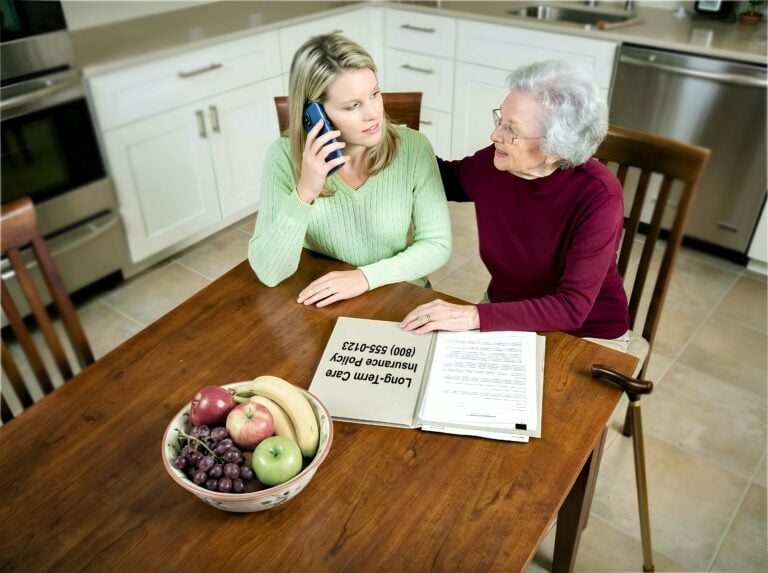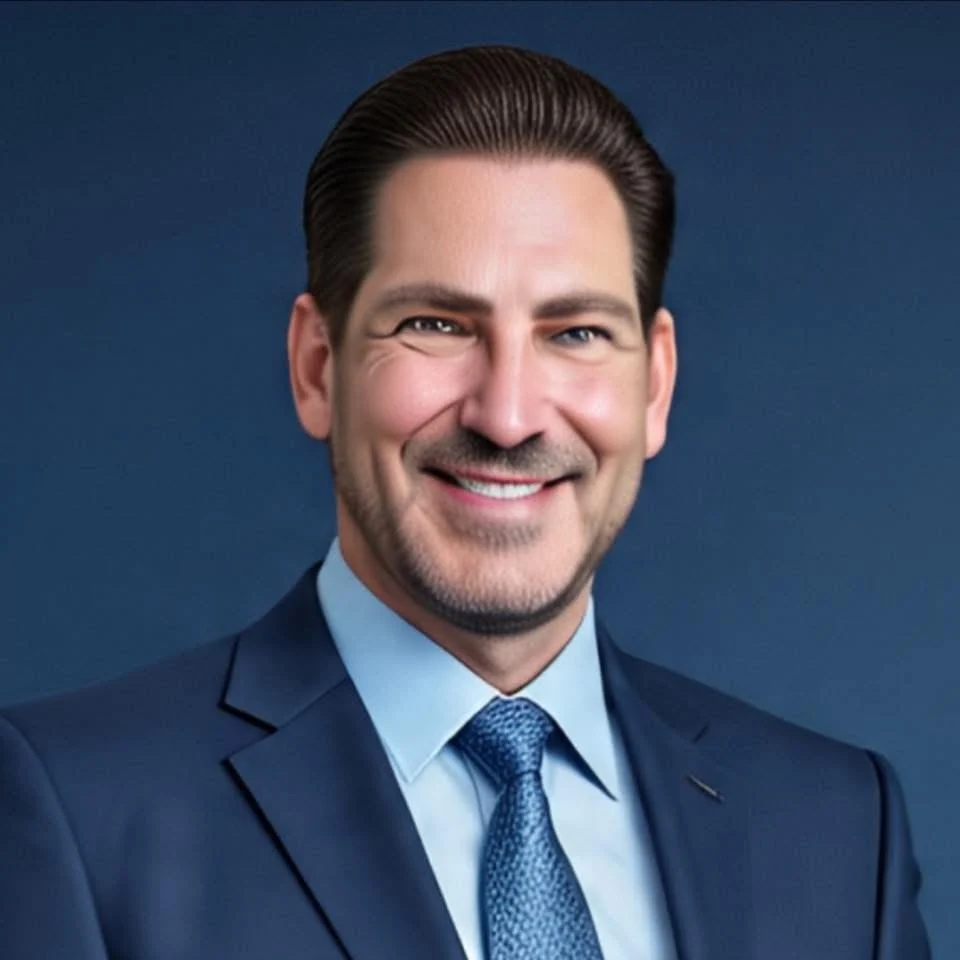Alzheimer’s disease is one of the most misunderstood medical conditions in our world today. Because it progresses slowly and touches so many layers of a person’s being—memory, personality, behavior—it’s often surrounded by fear, confusion, and misinformation.
At All Heart Home Care, we work with families throughout San Diego County who are navigating the emotional and practical challenges of Alzheimer’s. We know firsthand that the more you understand the truth, the better prepared you’ll be to care for your loved one—and yourself.
According to the Alzheimer’s Association’s 2025 Facts and Figures, an estimated 7.2 million Americans age 65 and older are now living with Alzheimer’s disease—a number projected to nearly double to 13.8 million by 2060. With so many families affected, separating fact from fiction has never been more important.
Let’s clear up some of the most common myths.
Myth 1: Memory loss is just a normal part of aging.
The truth: Some forgetfulness is normal as we get older. But Alzheimer’s is more than misplaced keys—it’s forgetting familiar names, struggling with language, getting lost on the way home, or repeating questions without realizing it.
When memory problems start to interfere with daily life, that’s a sign that something deeper is going on. Early diagnosis gives families the opportunity to plan, adapt, and access support—such as home care services from All Heart Home Care—before the disease progresses further.
Myth 2: Alzheimer’s and dementia are the same thing.
The truth: Think of dementia as the umbrella term—it refers to a group of symptoms affecting memory, thinking, and social abilities. Alzheimer’s is the most common form of dementia, accounting for 60-80% of cases, but there are others like Lewy body, vascular, and frontotemporal dementia.
Each type requires its own approach to care, which is why a proper diagnosis is so important. New diagnostic tools, including FDA-cleared blood tests, are making it easier than ever to distinguish among dementia types and ensure people receive appropriate treatment.
Myth 3: Alzheimer’s isn’t fatal.
The truth: Unfortunately, Alzheimer’s is a terminal illness. As it progresses, it damages more than memory—it affects vital functions such as swallowing, mobility, and, eventually, the ability to communicate and care for oneself. Deaths from Alzheimer’s have more than doubled since 2000, making it the seventh-leading cause of death in the United States.
This doesn’t mean there’s no hope. There is so much that can be done to ensure comfort, dignity, and connection in every stage. At All Heart Home Care, we support families throughout San Diego County with compassionate in-home Alzheimer’s care so loved ones can remain in familiar surroundings.
Myth 4: Only seniors get Alzheimer’s.
The truth: While age is a major risk factor—about 74% of Americans with Alzheimer’s are 75 or older—younger people can develop early-onset Alzheimer’s, sometimes as early as their 40s or 50s. Researchers estimate that about 200,000 Americans under 65 are living with younger-onset dementia.
This form tends to be more aggressive, and its signs are often misdiagnosed or overlooked. If something feels off, trust your gut. Seek an evaluation, regardless of age.
Myth 5: Alzheimer’s can be caused by medications.
The truth: There’s no scientific evidence showing that commonly used medications cause Alzheimer’s. That said, some medications can cause temporary memory issues or confusion, especially in older adults. It’s always wise to review medications with a healthcare provider.
Alzheimer’s itself is driven by complex brain changes involving the buildup of amyloid plaques and tau tangles—not caused by taking sleep aids or cholesterol medications.
Myth 6: You can’t diagnose Alzheimer’s until after death.
The truth: This myth is now outdated. While a definitive diagnosis once required examining brain tissue after death, remarkable advances in diagnostic technology have changed everything.
In May 2025, the FDA cleared the first blood test—the Lumipulse G pTau217/ß-Amyloid 1-42 Plasma Ratio—to aid in diagnosing Alzheimer’s disease. In October 2025, a second blood test (Elecsys pTau181) was cleared specifically for use in primary care settings. These blood tests measure key biomarkers that indicate amyloid plaques in the brain, offering a less invasive and more accessible alternative to PET scans and spinal taps.
Combined with cognitive testing, brain imaging, and comprehensive medical evaluation, doctors can now diagnose Alzheimer’s with considerable accuracy during a person’s lifetime. Early diagnosis means more time to plan, get support, and access treatments that can slow disease progression.
Myth 7: Vaccines increase your risk of Alzheimer’s.
The truth: This myth has been thoroughly debunked—and the reality is quite the opposite. A growing body of research suggests that certain vaccines may actually reduce the risk of dementia.
Recent studies have found:
• Flu vaccination — Associated with a 17-40% reduction in Alzheimer’s risk, with greater protection linked to more frequent vaccination.
• Shingles vaccination — Associated with a 20-53% reduction in dementia risk, with some of the strongest evidence to date.
• Pneumococcal vaccination — Associated with up to 40% reduced Alzheimer’s risk in certain populations.
Researchers believe vaccines may help by reducing inflammation, preventing infections that can accelerate cognitive decline, and supporting overall immune function. Maintaining your overall health—by preventing illness through vaccines—actually helps protect your brain.
Myth 8: Artificial sweeteners cause memory loss.
The truth: There’s no conclusive evidence that sweeteners like aspartame cause Alzheimer’s. As with all things, moderation is key.
What does matter? The 2024 Lancet Commission on Dementia identified 14 modifiable risk factors that, if addressed, could prevent or delay up to 45% of dementia cases worldwide. These include managing high blood pressure, preventing hearing loss, limiting alcohol, maintaining a healthy weight, treating depression, staying physically active, avoiding smoking, and reducing social isolation.
A heart-healthy, brain-healthy diet—rich in vegetables, healthy fats, lean proteins, and whole grains—can support long-term cognitive health. But there’s no need to fear your diet soda.
Myth 9: There are no treatments that can slow Alzheimer’s.
The truth: This is no longer accurate. While there is still no cure, the treatment landscape has transformed dramatically in recent years.
In July 2023, the FDA granted full approval to lecanemab (Leqembi)—the first treatment proven to slow cognitive decline by clearing amyloid plaques from the brain. In July 2024, a second disease-modifying treatment, donanemab (Kisunla), received FDA approval. Clinical trials showed these treatments can slow disease progression by approximately 25-35% in people with early-stage Alzheimer’s.
These medications are specifically for people in the early stages of the disease, which is why early diagnosis is so crucial. They don’t reverse existing damage, but they can give people more time to participate in daily life and maintain independence.
Beyond medications, holistic care remains essential. Routine, emotional support, cognitive stimulation, and a safe environment can vastly improve quality of life at every stage.
Myth 10: Alzheimer’s is just “Type 3 diabetes.”
The truth: This theory has gained traction online, but it oversimplifies a complex disease. “Type 3 diabetes” is not an officially recognized medical or diagnostic category; it has not been adopted by major health organizations such as the World Health Organization or the American Diabetes Association.
That said, research shows meaningful links between metabolic health and brain health. Studies indicate that people with Type 2 diabetes have a 50-90% higher risk of developing dementia compared to those without diabetes. Insulin resistance in the brain appears to contribute to some of the pathological processes seen in Alzheimer’s, including amyloid buildup and tau tangles.
The takeaway? Managing conditions such as diabetes and heart disease may help reduce risk or slow disease progression. But Alzheimer’s isn’t simply “caused” by diabetes—it’s a complex disease influenced by genetics, lifestyle, and environmental factors throughout life.
The Power of Knowledge, the Strength of Support
Myths can lead to stigma, fear, and delay in getting help. But the truth? Families facing Alzheimer’s need real information, loving support, and practical tools to navigate what’s ahead.
At All Heart Home Care, we’re here to walk that road with you—providing skilled, compassionate in-home care services for every stage of Alzheimer’s. Whether you’re just starting to notice changes or are deep in the caregiving journey, you’re not alone.
How Home Care Can Help Alzheimer’s Patients
If you or a loved one has been diagnosed with Alzheimer’s disease, it’s important to obtain some help around the home. Our caregivers can help in many ways, including:
✓ Performing domestic duties — Light housekeeping, laundry, and maintaining a safe environment.
✓ Meal preparation — Delivering food or cooking nutritious meals in your home.
✓ Personal care assistance — Helping with bathing, grooming, and hygiene.
✓ Transportation — Taking your loved one to medical appointments and social engagements.
✓ Medication reminders — Ensuring medications are taken on schedule.
✓ Companionship and supervision — Providing meaningful engagement and ensuring safety throughout the day.
✓ Respite for family caregivers — Giving you the breaks you need to recharge and care for yourself.
References
- Alzheimer’s Association: 2025 Alzheimer’s Disease Facts and Figures
- FDA: First Blood Test Cleared for Diagnosing Alzheimer’s Disease (May 2025)
- Alzheimer’s Association: Lecanemab (Leqembi) Treatment Information
- Alzheimer’s Association: Donanemab (Kisunla) Treatment Information
- The Lancet: Dementia Prevention, Intervention, and Care: 2024 Report
- Age and Ageing: Association Between Vaccinations and Risk of Dementia (2025)
We’re Here to Help
If you have any questions about Alzheimer’s disease or home care services, contact All Heart Home Care at (619) 736-4677. As a veteran-owned, nurse-led agency serving San Diego County since 2014, we offer in-home consultations and would love to discuss the many home care services we provide.
You don’t have to face this journey alone. We’re here to help with all your home care needs.






